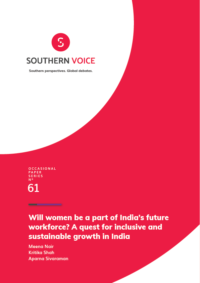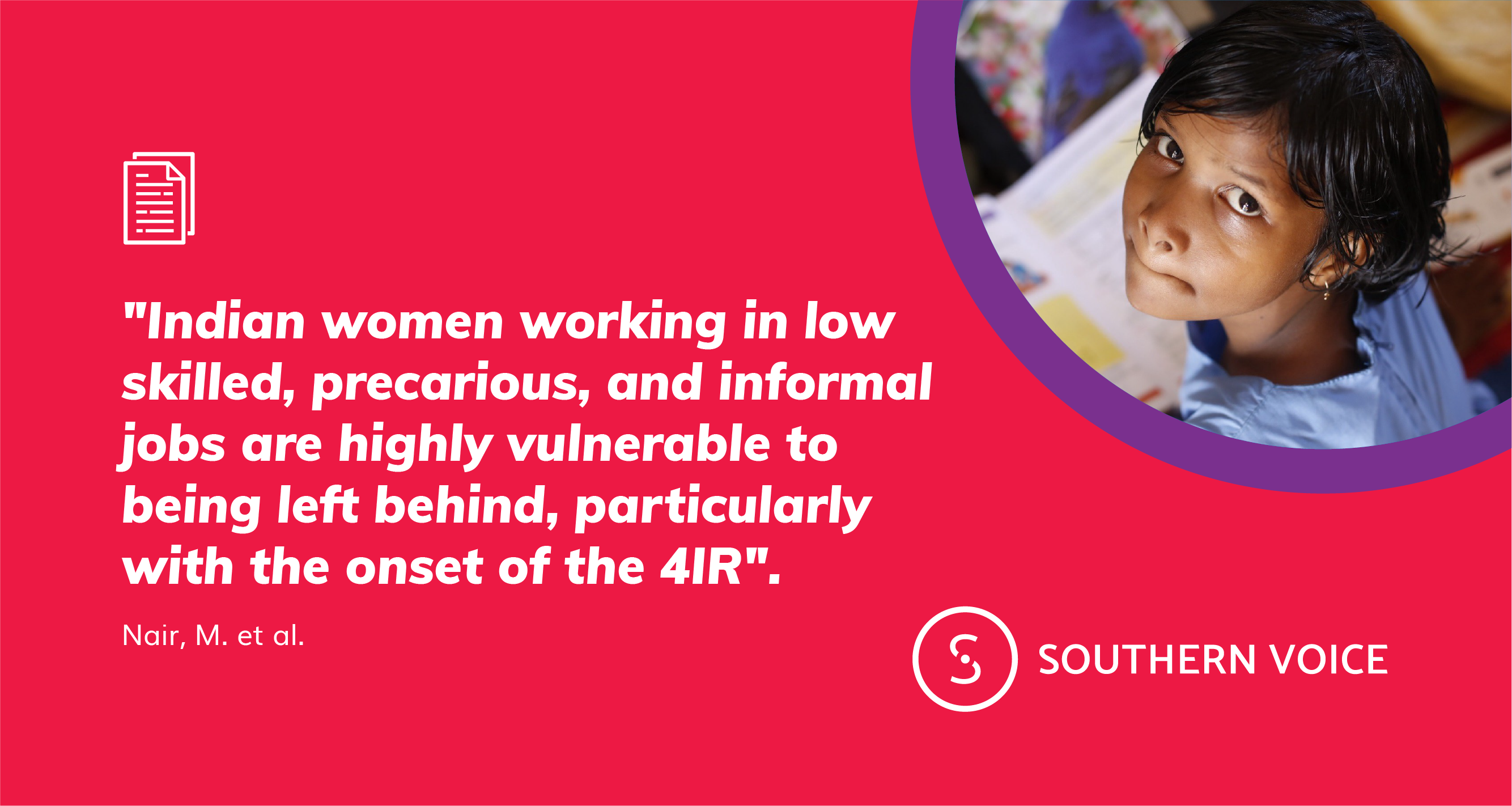Six research projects were chosen for the first “Southern Voice on the State of the Sustainable Development Goals” (SVSS)report. Today…
 This study examines India’s low and declining female labour force participation in the context of Sustainable Development Goals (SDGs) 4 and 8, adapting the Rao-Kelleher Gender Framework to understand structure and agency issues impacting women. A mixed-method research approach was employed, with primary data from three districts of India, with different levels of female workforce participation, analysed to expose barriers to, and enablers of, labour and skilling. The study focuses specifically on the Pradhan Mantri Kaushal Vikas Yojana (PMKVY) national skilling scheme. The study found that while the level of education and participation in a skilling program are not strongly linked to a woman’s decision to join the workforce, factors such as marriage, safety during travel, and exposure to vulnerabilities from the informal/unorganised market were significant in female workforce participation. Findings show that gender-biased beliefs and norms within the household regarding menstruation and post-marital gender roles present important barriers. They constrain women’s agency and choice, with decisions which are instead determined by household dynamics and workplace and societal structures.
This study examines India’s low and declining female labour force participation in the context of Sustainable Development Goals (SDGs) 4 and 8, adapting the Rao-Kelleher Gender Framework to understand structure and agency issues impacting women. A mixed-method research approach was employed, with primary data from three districts of India, with different levels of female workforce participation, analysed to expose barriers to, and enablers of, labour and skilling. The study focuses specifically on the Pradhan Mantri Kaushal Vikas Yojana (PMKVY) national skilling scheme. The study found that while the level of education and participation in a skilling program are not strongly linked to a woman’s decision to join the workforce, factors such as marriage, safety during travel, and exposure to vulnerabilities from the informal/unorganised market were significant in female workforce participation. Findings show that gender-biased beliefs and norms within the household regarding menstruation and post-marital gender roles present important barriers. They constrain women’s agency and choice, with decisions which are instead determined by household dynamics and workplace and societal structures.


